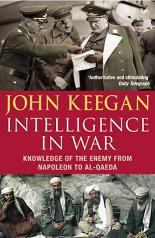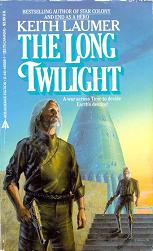
Intelligence in War
John Keegan
443 pages including index
published in 2003
John Keegan is one of the better known British military historians, having been a lecturer at Sandhurst before becoming defence editor at the Daily Telegraph, as well as writing a slew of books about military history. Keegan seems to write two kinds of books: the first kind follows a war or campaign in some detail, while the second takes a specific aspect of war (or even war as whole) and follows its development through the ages. Intelligence in War is an example of the second kind. As you may guess, he’s somewhat of an establishment historian, accepting and understanding that war is an essential part of human nature, even if an unfortunate part. He’s therefore more interested in writing how wars are fought than how they come to be. Within those limitations he’s an excellent history writer, one of my favourites when it comes to military history.
Intelligence in War, as said, is typical of Keegan’s work. Through the careful selection of several case histories Keegan examines the role intelligence plays in warfare and its limitations and capabilities to influence battles. Keegan distinguishes five separate stages intelligence has to go through to be able to influence a battle: acquisition, delivery, acceptance, interpretation and implementation. Due to difficulties that can arise at each stage, Keegan is skeptical about how influential intelligence is for a given battle. His main thesis is that intelligence can be useful in battle, but is rarely decisive, even in those cases which are supposed to be the examples of intelligence determining the outcome of battles. For Keegan, intelligence is only ever a secondary factor in winning or losing battles, with things like the relative balance of forces and the determination and will of the opposing troops and commanders being much more important.



